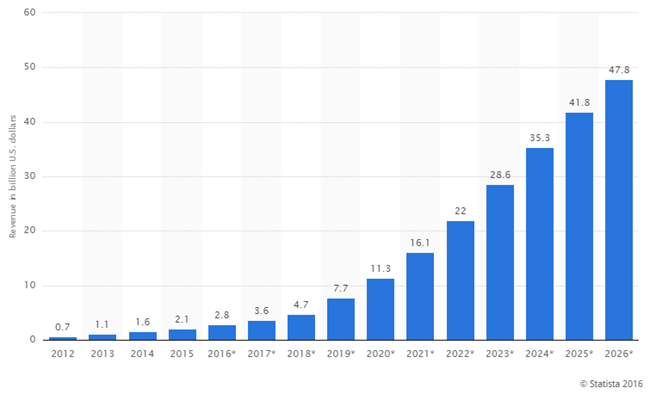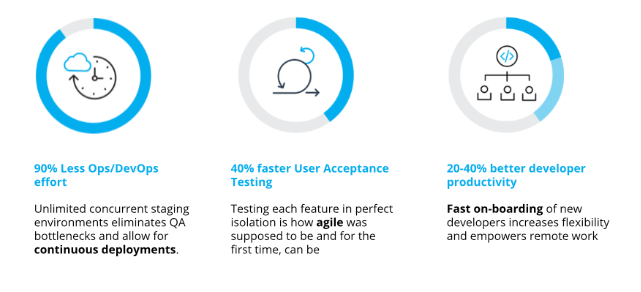eZ Systems Announces its New PaaS Partnership
An open source enterprise content management system (CMS) provider eZ Systems announced their plan to partner with a cloud-hosting provider Platform.sh, in an effort to help organizations build content-rich websites and applications at speed and scale.
 “The PaaS concept brings the promise of helping developers focus on what really matters: developing new features. With Platform.sh for eZ Platform and eZ Enterprise, this promise turns real. Finally, developers can focus on code, and not on infrastructure. This means a lot for the business,” said Roland Benedetti, Chief Product and Marketing Officer, eZ Systems.
“The PaaS concept brings the promise of helping developers focus on what really matters: developing new features. With Platform.sh for eZ Platform and eZ Enterprise, this promise turns real. Finally, developers can focus on code, and not on infrastructure. This means a lot for the business,” said Roland Benedetti, Chief Product and Marketing Officer, eZ Systems.
The partnership will provide a big advantage to Ez Systems users as Platform.sh provides a 99.99% uptime service language agreement. It means less work for those inside its Web CMS ecosystem. Ez Systems believes the partnership “is going to make a significant impact on the lives of developers in the eZ Community and help CEOs, CIOs and CTOs sleep better at night.”
A content marketer, marketing technology analyst, Barb Mosher Zinck, wrote in one of her articles published on CMS-Connected: “Platform-as-a-Service (PaaS) means that you have complete access to a cloud environment - servers and software - to develop, manage and run your applications.” With Platform.sh’s Platform-as-a-Service(PaaS), eZ aims to enable developers to deploy and manage new applications faster and more frequently, meaning that developers will have a better user experience, elevate production uptime, continuously deliver the changes, and customize and extend eZ Platform. They will be able to deploy all without the complexity of maintaining the software and infrastructure underneath it. Ultimately, the integration is expected to bring digital success to business users and executives.
In fact, according to this recent study, the revenue of vendors offering platforms-as-a-service in the public cloud market is predicted to reach a combined value of 68.3 billion U.S. dollars by 2026.

Benefits of the PaaS Model
Innovate Faster: We are in the digital era where market opportunities lose ground rapidly due to the fast pace of innovation. Therefore, it is imperative for businesses to quickly take action on new ideas by transforming them into real applications, so they can meet rapidly evolving business and technical needs. The PaaS model simplifies, automates, and in many cases eliminates the steps affiliated with setting up the infrastructure for applications. Given these benefits, developers can deploy applications much more quickly, and over time they can iterate, adapt, and extend them more rapidly.
Less Headcount: With this model, organizations don’t need to choose to spend their limited headcount on an ops person over application developers, as their PaaS provider is taking care of the details on the technical delivery side. In this way, IT departments would no longer be locked down to make sure a technical environment is up and running. Instead, they can spend more time on building applications with innovative features and better user experiences which give a business the edge over competitors.
Cost Reduction: Focusing development resources, spending less headcount on unneeded expertise, and eliminating steps, naturally brings cost reduction alongside productivity. Not only these but also the model reduces human errors which are actually, a brutal hidden cost. For instance, if one of your administrators makes a mistake configuring your application server and no one can access your Web application for hours, this downtime causes not only hard cost but also soft cost such as unproductivity, undermined reputation, and so on. Unfortunately, this is not something that only happens rarely in the business world. In fact, according to a study by Uptime Institute, 70% of data center downtime is caused by human error.
Not Falling Behind: There is no need to stress the importance of constantly and consistently keeping in step with customer demands, but to do so, organizations need an agility which can’t always be offered by on-premises software and infrastructures. Conversely, the PaaS platforms continuously incorporate and test component updates and bring them into the platform.
Security: Security is another significant advantage of the PaaS model. Due to the large amount and variety of security threats on an upward spiral, it is wise to work with specialists. A PaaS offering provides continual security updates for individual stack components as they are issued.
In the light of this information, let’s summarize the benefits of Platform.sh for developers:
-
They can take the time that would have been doing system administration and put it into the application code writing.
-
They don’t need to worry about deploying configuring databases as Platform.sh takes care of it.
-
The service will configure the app they created as well as the copies of it. Search engines, caches, and the file system connect to it too.
-
They can launch projects faster, release them with better quality more quickly as Platform.sh makes sure everything is consistently backed up and restored.
-
Platform.sh eliminates testing restrictions as every git branch or every pull-request gets an automatically generated staging that provides for both automated and user-acceptance testing.

In their press release, the company claimed that “the new version of eZ’s platform offers a strong differentiator from other CMS solutions. By choosing to partner with Platform.sh, eZ stands to benefit from accelerated license sales, and incremental revenue growth from PaaS hosting as part of their business model.”
Although Platform as a Service is, currently, the smallest segment of the total cloud computing market, revenues are expected to grow distinctly in the near future. In fact, the share of platform as a service is expected to triple in 10 years. In the space, the biggest players are Salesforce, Amazon, Microsoft, and IBM. On a side note, Salesforce is currently the largest vendor of cloud platform services while Amazon has already taken over much of the cloud infrastructure market.

Venus Tamturk
Venus is the Media Reporter for CMS-Connected, with one of her tasks to write thorough articles by creating the most up-to-date and engaging content using B2B digital marketing. She enjoys increasing brand equity and conversion through the strategic use of social media channels and integrated media marketing plans.